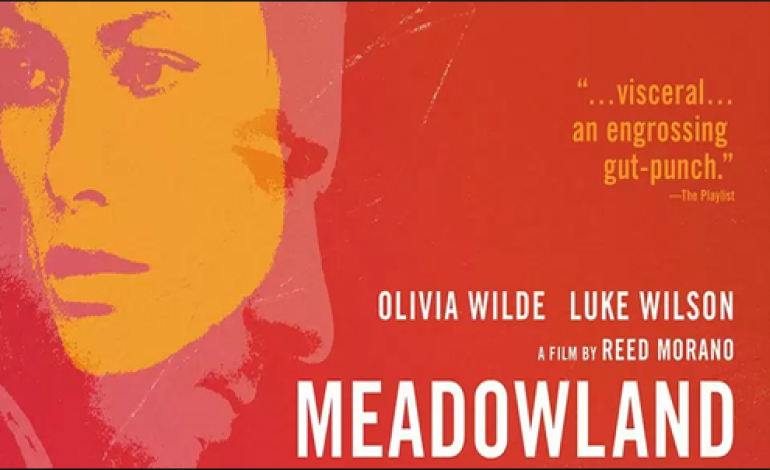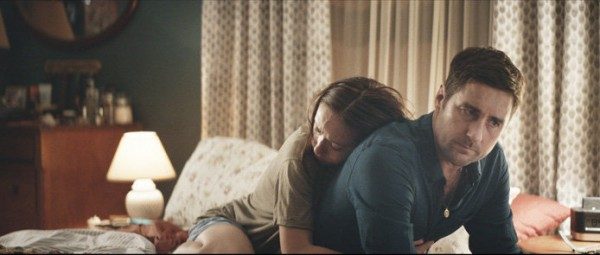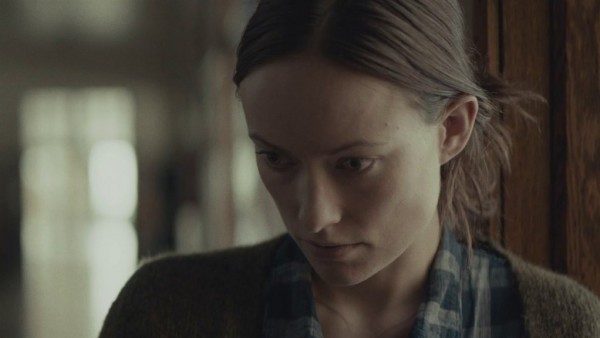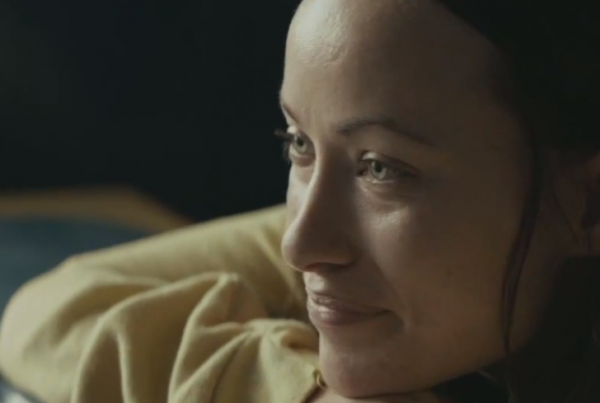

“It might just keep getting darker.” A juxtaposition foreshadowing the journey about to take place is given to the protagonist character early on, but it might as well have been given to the viewer. Darkness is the prevalent theme that surrounds the anguish parents who have lost a child. This concept is not easily quantifiable, if at all, by a normal person outside the situation. But that’s the role we are placed in as spectators of this unflinching look at loss and despair. Meadowland, Reed Morano’s directorial debut holds no bar as it dives into the dark recesses of two broken people at the loss of their light.
The film follows two parents in the aftermath of losing child and their subsequent avenues to cope with such a tragedy. Sarah and David, played by Olivia Wilde and Luke Wilson, provide a stark human picture most films aim for, but few achieve. Sarah, an English school teacher, seemingly is lost in denial holding out hope her child is alive somewhere. David, a New York City policeman, attends a support group of lost love ones as he begrudgingly accepts the real possibility that his son may not be alive.
Morano was a cinematographer before moving on to directing and that can be seen in the final product. She served as the cinematographer for one of last years best films, The Skeleton Twins, and a lot of the same elements carry over to this film. Both films focus on female protagonists, and neither are heroes or even sympathetic at times – they’re purpose is not to be likable but to be real human portrayals. The film is carried by an understated score and soundtrack, which mostly stays in the background until some moments in the film call for something extra, and the music delivers. Most notably is Kid Cudi’s “Unf***wittable,” which suspends jolts in a pivotal scene with its synth beats.
The majority of the film, save for the opening scene, takes place one year after the incident. We are put inside Sarah and David’s marriage, one that has suffered such a blow it might as well be held together by duct tape. Sarah is in denial and taking meds to cope with the situation while embarking on random and bizarre walks in the middle of the night. David visits the site of the accident as he witnesses the slow mental deterioration of his wife. This is serves as the background as David’s ex-drug addict brother comes to town, portrayed by the fantastic Giovanni Ribisi, and so too does an investigation to their son’s disappearance that brings up old wounds to be stapled shut instead of healed.
Olive Wilde provides a tour de force performance that should garner consideration for Best Actress. Having already carved out a dual-facet career in big budget blockbusters and indie films, she seems to particularly excel in the independent avenue. She was also in the largely forgotten but still great Drinking Buddies alongside Jake Johnson, Ron Livingston and Anna Kendrick. Breaking out as the real star of the film, Wilde commands every scene with such nuance and emotion, you can’t help but me mesmerized by her realness and brokenness. Slowly throughout the film, she provides flashes of the shattered spirit inside. Striking, Sarah takes up a friendship with Adam (Ty Simpkins), a young boy with Asperger’s. When she finally finds out the true fate of her son, the unspoken hopelessness hanging around envelopes her and all the while it’s hard to take your eyes off her. Her performance brings to mind Reese Witherspoon’s in Wild.
While Luke Wilson plays second fiddle to Wilde, this by no means diminishes his presence. His personal portrayal of coping through quiet madness plays off Wilde’s erratic behavior. The actor is slowly making his way to the indie film circuit away from the bigger films that were Old School and Legally Blonde – Wilson co-starred is last year’s refreshingly great The Skeleton Twins – and carving out a niche as an embattled husband (which he does in both films).
Elizabeth Moss – of Mad Men fame – has a much too small role as the mother of Adam. John Leguizamo plays another father in David’s support group while Kevin Corrigan plays Adam’s father and a cog in Sarah’s downward spiral. Juno Temple and Merritt Wever also have minor roles, only appearing in a few scenes as a troubled young girl and a teacher respectively. In the same thematic element as past films – Shame, Half Nelson – Meadowland has very few moments of levity and is bogged down by its dark material. The brief moments of relief come from Adam and other students in Sarah’s class. Adam in portrayed by rising child actor Ty Simpkins, and chances are you’ve seen him in a film or two. Most recently, he was in the mega blockbuster Jurassic World this past summer and he also has Iron Man 3 and the first two entries into the Insidious horror franchise in his burgeoning resume. Simpkins has developed strong acting skill at a young age, which is visible as the lonely and troubled Adam.
Make no mistake about it, this is no feel good film. But it doesn’t try to be. Morano delivers a portrait of brokenness and that requires a look at the broken pieces. The film goes through moments where the viewer knows and becomes exasperated by the actions of the characters, but tragedy on this magnitude destroys sanity and morality.
Verdict: 4 out of 5
Meadowland is a raw look a the fragility that life can be and that is not always fun to watch. But the film is outstanding, from the acting to directing, it does everything well. Morano carries on the mantel of past looks into unfortunate events and excels in that feat. In the same spirit as Shame, Half Nelson and to some degree, Wild (which is more about self discovery after madness), Meadowland is grotesque in its accurate representation of decaying despair carried by powerful performances by the cast, most notably Olivia Wilde. Morano delivers a stellar directorial debut, which brings promise to whatever she does next.



